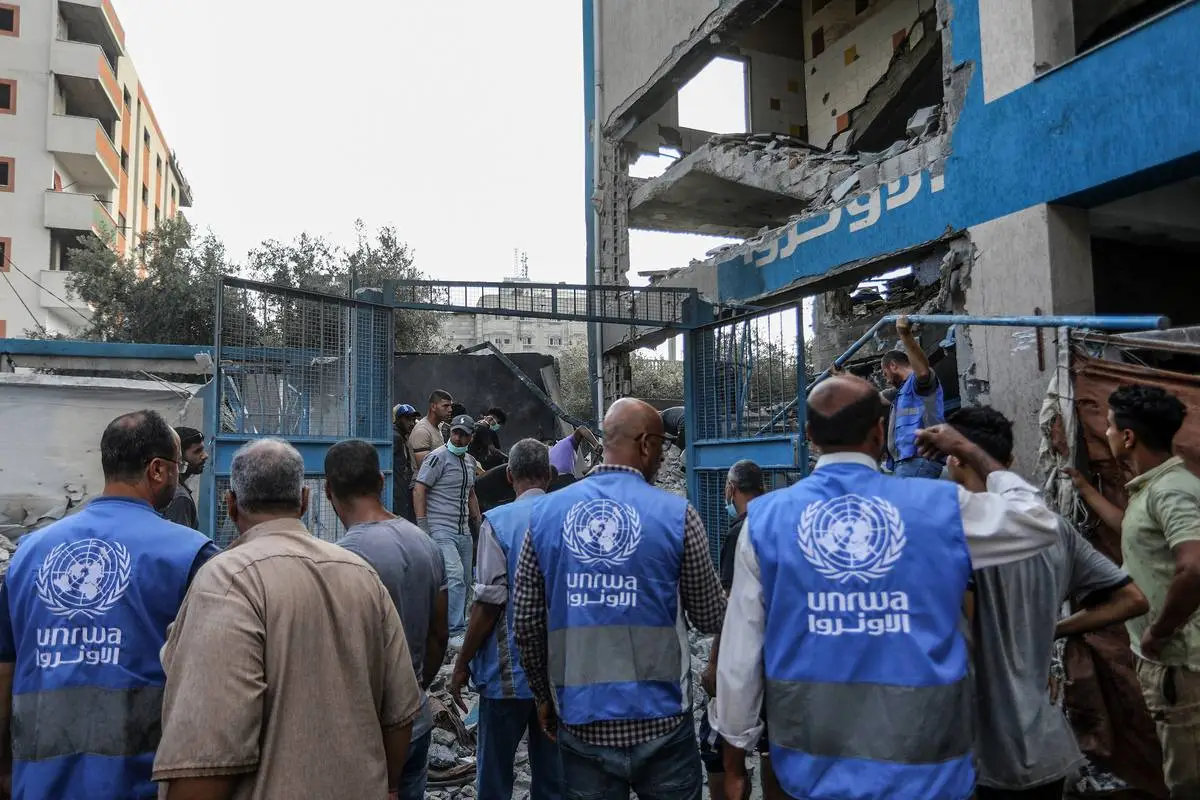UNRWA, the United Nations Palestinian relief agency, has cried out for a humanitarian and educational crisis in Gaza following the recent move of legislation by Israel. A new Israeli law slated to come into effect toward the end of January would ban the operations of UNRWA in the country. According to UNRWA, hundreds of thousands of children in Palestine risk losing their education. UNRWA Commissioner-General Philippe Lazzarini cautions that the consequences could be “catastrophic” for Gaza, where a large population relies on the agency for services.
New legislation threatens to end UNRWA’s role in Gaza.
Last month, the Israeli parliament voted through a law that will prevent UNRWA from operating inside Israeli territory. In force from late January, the law directly threatens the agency’s work in Gaza, which it has carried out since 1949, providing essential education, health, and humanitarian services. “In this case, without UNRWA, the humanitarian infrastructure of the area would be severely affected, mainly in the education sector,” said Lazzarini, referring to a UN General Assembly committee.
As Lazzarini pointed out, “In Gaza, dismantling UNRWA will collapse the United Nations humanitarian response.” He further said that over 660,000 children in Gaza depend on the schools operated by UNRWA, and any dismantling would leave them not only without education services but also exposed to extremist influence.
Global Response to the New Act
The international reaction to the looming ban has been critical, with critical UN figures as well as nations asking Israel to reverse the move. US Ambassador to the UN, Linda Thomas-Greenfield, described the work of UNRWA as “indispensable” and asked Israel to hold back on executing the new law. The UN Security Council has also openly expressed support for UNRWA, warning the world against attempts to liquidate the agency that caters to millions of Palestinians in Gaza, the West Bank, and other neighboring countries.
With President-elect Donald Trump taking office in January, the future of UNRWA is now in question. Given that he was pro-Israel during his first term, his administration is expected to support Israeli decision-making, which adds more uncertainty to the relief agency’s fate.
Role of UNRWA in the Palestinian Territories
Established in 1949, UNRWA has remained the lifeline for Palestinians for many years, providing them with basic needs ranging from food aid and health services to education. In the Gaza Strip, where public administrative capacities are limited, UNRWA is vital in maintaining minimum services. UN Secretary-General Antonio Guterres even repeated that if UNRWA were to be replaced, the occupying power, namely Israel, would have to take on the humanitarian and educational responsibilities of the agency.
But Israel is on the other side. “We disengaged from Gaza in 2005. We handed it over to the Palestinian Authority,” said Israel’s UN Ambassador Danny Danon. He added that while Israel remains committed to humanitarian aid and collaboration with UN agencies, it can’t collaborate with organizations with which it perceives ties to terrorism.
Smear Allegations against UNRWA
This follows claims that some UNRWA employees might have been involved in militant activities. It is alleged that Hamas militants attacked parts of Israel last October 2023. In the process, several UNRWA employees were noted to have participated in the attack, escalating the current war in Gaza. The United Nations has admitted nine of its employees may have been involved and were dismissed. A former Hamas commander who was at that time a former UNRWA employee was killed by Israeli forces in Lebanon.
As the end of January deadline draws near, UNRWA’s Lazzarini pleads with UN member states to take immediate action and avoid the shutdown of this agency in Gaza. This could, in itself, have far-reaching consequences that would affect not only education but also the stability and future of the region.















